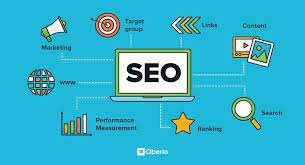Content Marketing 101: A Beginner’s Guide to Creating Compelling Content
Content marketing is a strategic approach that focuses on creating and distributing valuable, relevant, and consistent content to attract and retain a target audience. It plays a crucial role in building brand authority, driving website traffic, and nurturing customer relationships. If you’re new to content marketing, here’s a beginner’s guide to help you get started on the right track.

- Define Your Target Audience:
- Identify your target audience by understanding their demographics, interests, pain points, and information needs.
- Use tools like customer surveys, market research, and social media insights to gather valuable audience data.
- Set Clear Content Marketing Goals:
- Determine your content marketing goals, such as brand awareness, lead generation, customer retention, or thought leadership.
- Make sure your goals are specific, measurable, attainable, relevant, and time-bound (SMART).
- Create a Content Strategy:
- Develop a content strategy that aligns with your goals and resonates with your target audience.
- Plan your content topics, formats (e.g., blog posts, videos, infographics), and distribution channels.
- Focus on Quality and Relevance:
- Create high-quality, informative, and engaging content that provides value to your audience.
- Address their pain points, answer their questions, and offer practical solutions.
- Optimize Your Content for Search Engines:
- Conduct keyword research and incorporate relevant keywords naturally into your content.
- Optimize on-page elements such as meta tags, headings, and image alt tags to improve search engine visibility.
Frequently Asked Questions:
Q1: How often should I publish content?
A: Consistency is key, but the frequency of content publication depends on your resources and audience preferences. Start with a manageable schedule (e.g., weekly or biweekly) and adjust based on audience engagement and resource availability.
Q2: Should I focus on creating different types of content?
A: Yes, diversify your content formats to cater to different audience preferences and consumption habits. Consider incorporating blog posts, videos, podcasts, infographics, and downloadable resources into your content mix.
Q3: How can I promote my content effectively?
A: Promote your content through various channels such as social media, email marketing, influencer collaborations, guest blogging, and content syndication. Leverage your existing networks and actively engage with your audience to drive traffic to your content.
Q4: How do I measure the effectiveness of my content marketing?
A: Use analytics tools like Google Analytics or social media insights to track metrics such as website traffic, engagement, conversion rates, and social media shares. Set goals and key performance indicators (KPIs) to measure the success of your content marketing efforts.
Q5: Can I repurpose my existing content?
A: Absolutely! Repurposing content involves taking existing content and presenting it in a different format or targeting a different audience. It helps extend the lifespan of your content, reach new audiences, and maximize your content marketing efforts.
Conclusion: Content marketing is a powerful strategy for businesses to connect with their target audience, establish authority, and drive engagement. By understanding your target audience, setting clear goals, creating a content strategy, focusing on quality and relevance, and optimizing for search engines, you can create compelling content that resonates with your audience and achieves your marketing objectives. Remember to consistently monitor and analyze your content performance to refine your strategies and deliver value to your audience.
- SEO optimization techniques
- Effective SEO strategies
- Top SEO tips
- Boosting website rankings
- Proven SEO tactics
What’s your Reaction?

